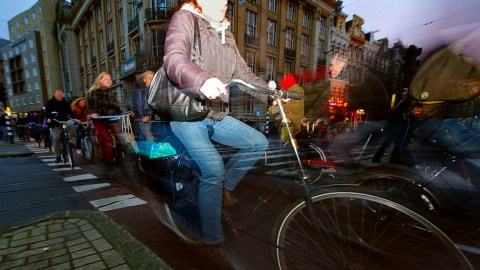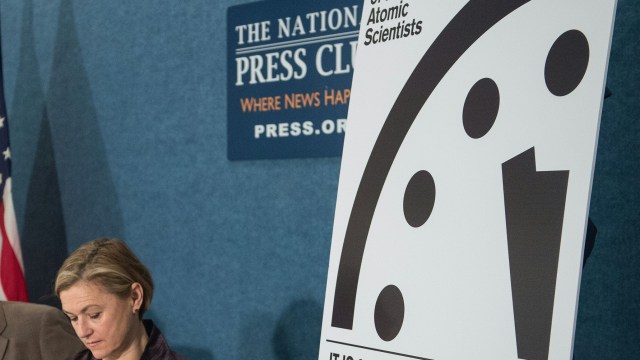The Top Bicycle-Friendly Cities in the World

There was a really terrific piece in The Guardian this week about bicycle-friendly cities, and it’s raised some interesting thoughts about how easy it is to create an urban area where two-wheeled commuters thrive.
The common refrain is one that applies just as well to bicycle infrastructure as it does to Kevin Costner and cornfields: If you build it, they will come.
According to the 2015 Copenhagenize Index, which assesses populous cities around the world, Copenhagen, Amsterdam, and Utrecht are the world’s most bike-friendly urban areas. These cities dominate the list year in and year out, and for good reason: They invest heavily in bike lanes. In turn, they enjoy a much higher bicycle modal share, which is a stat measuring the percentage of residents who choose bicycling over other transport options. In Copenhagen, the bicycle modal share is currently 45 percent, a figure that belies major economic and environmental benefits for the city.
From The Guardian:
“One Danish study reveals that for every kilometre cycled, society enjoys a 23 cent (16p) profit, while driving the same distance produces a net loss of 16 cents (10p). Of course, cycling also increases fitness, tackles stress levels and one less car on the road will help to lower pollution levels.”
The United States of Bicycling
The highest ranked American city in the index is Minneapolis at no. 18. Copenhagenize calls it a “leadership city” for the American urban cycling movement, noting that Portland (Oregon), Washington, D.C., New York City, and San Francisco are on its heels.
Minneapolis came out on top for several key reasons. It boasts about 120 miles of on-street bikeways, with another 90 off-street. It’s home to a robust bike-share program, a gateway for new cyclists. Finally, the Twin City’s civic government is dedicated to infrastructure investment and committed to keeping Minneapolis bike-friendly year-round, even when the city looks like this.
Among smaller urban areas in the U.S., the California college town of Davis tops the League of American Bicyclists (LAB) city rankings with a 23.2 percent bicycle modal share.
Former Rust Belt giants such as Cincinnati and Detroit (aka the Motor City), long considered big car cities, are now among the fastest-growing cycling cities in America.
Portland, Oregon, a city many associate with its environmentally keen residents, is another cyclists’ haven. Athlyn Cathcart-Keays, who wrote the aforementioned Guardian piece, astutely mentions that Portland has spent around $60 million over the past few years on massive bicycle infrastructure improvements that have resulted in 320 miles of bike lanes. That may sound like a lot of money until you realize it’s about the same that it would cost to build just one mile of urban freeway. And unlike freeway roads, maintaining bike infrastructure is relatively inexpensive.
The key takeaway here: European cities like Copenhagen and Amsterdam dominate yearly bike-friendly lists for good reason, yet it wasn’t so long ago that even these cities resembled auto-centric cities like those in the United States. That means it isn’t just something in the Danish and Dutch water that has made those people so bike-crazy. It was smart investment in environmentally and economically beneficial transport options, and it’s a formula that can work anywhere as long as the right people are in charge.
Source: The Guardian
Photo credit: Jan Hennop/AFP/Getty Image
**
Robert Montenegro is a writer and dramaturg who regularly contributes to Big Think and Crooked Scoreboard. He lives in Washington DC and is a graduate of Loyola Marymount University in Los Angeles.
Twitter: @Monteneggroll. Website: robertmontenegro.com.





